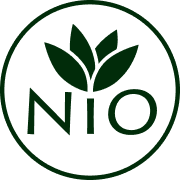Is matcha good for you?
This is a question we get asked all the time, and we are often reluctant to answer it.
At the end of the day, matcha tea is simply just tea leaves mixed into water, so it must be good for you.
There are often major health claims prescribed to matcha but they can be over exaggerated.
While we like to stay away from making health claims about tea, we thought we would take a look at what makes matcha tea unique and why matcha may be good for you.
Why is Matcha Good For You?

Before we get started, let’s just take a quick look at some of the claims that people have made about matcha. While the main reason we like matcha is for its taste, we like to see a lot of people drinking matcha tea for all sorts of different reasons.
#1 Matcha for Weight Loss
Some people claim that matcha helps people lose weight. The jury is still out on this, but we can take a look later on at what people are saying might be the reason for it. The question of is matcha good for weight loss can be answered once we learn a little bit more about what matcha is.
#2 Matcha for Skin
In addition to being consumed, matcha powder is also used topically for skin care. You can find recipes for matcha face masks and matcha creams online, and supposedly they can help reduce acne and lead to clearer skin. Before we answer is matcha good for skin, we have to examine the components of the tea.
#3 Matcha for Athletic Performance
A lot of people use matcha to improve their athletic performance. Many people like to drink the tea in the morning before their workout and report that it gives them a longer lasting, more sustained energy.
#4 Matcha for Concentration
Similar to drinking matcha tea before a workout, people also drink matcha before work or long periods of study. There are a few reasons why matcha may lead to better concentration, and we’ll get into them next!
Watch the Video About Health Benefits of Matcha
Benefits of Matcha
Before we determine if matcha good for you or not, we have to break it down into its components. What makes matcha so special? And what does matcha have that few other teas do?
Caffeine in Matcha
While all true teas contain some level of caffeine, matcha contains a much higher amount. There are a few reasons for this.
The first reason is that tea plant used to make matcha is shaded for three weeks before the harvest. During this time, the tea plant undergoes a lot of stress and has to produce more caffeine to defend itself from insects. As a result, shaded teas will have more caffeine than unshaded teas, all else being equal.
Caffeine is produced as a defense mechanism to protect the tea plants from insects. Caffeine can be very bitter and even poisonous to smaller insects, so it is an effective natural insect repellent. The younger leaves are more tender and vulnerable, and therefore they produce even higher levels of caffeine. Because matcha is made from the youngest sprouts of the tea plant, it gets a much higher dose of this caffeine, and this is the second reason why matcha is higher in caffeine than other teas.
The third reason for matcha’s abnormally high caffeine content is because of the fact that it has its stems removed during the production process. The stems of the tea plant have as little as a third of the caffeine compared to the leaves, and they are removed from the leaves to improve the flavor of the matcha. This raises the caffeine levels of matcha tea
Finally, the leaves are ground into a fine powder and mixed directly into water. This means that rather than extracting the caffeine slowly overtime like you would with a leaf tea, you get it all at once in one matcha bowl.
Theanine in Matcha
In addition to being high in caffeine, matcha is also high in theanine. Theanine is an amino acid that gives green teas their sweet and savory flavors. Although it is present in all types of Japanese green teas, it is particularly high in matcha. This has to do with the long 3 week shading process of matcha tea.
When the tea plant is exposed to sunlight, it begins to convert theanine into catechins as a protection against the UV light. When the tea plant is cut off from sunlight, it is able to retain more of its theanine. This leads to a smoother flavor, and potentially more health benefits of matcha.
Antioxidants in Matcha
The main antioxidant in teas is called EGCG or Epigallocatechin gallate. While this doesn’t necessarily exist in higher quantities in matcha, you end up ingesting more of it because you are drinking the entire leaf rather than just an extraction.
Chlorophyll in Matcha
Higher chlorophyll is another byproduct of the long shading process. This allows plants to convert sunlight into energy, and the tea plant is no exception. When the tea plant is cut off from sunlight, it has to produce more chlorophyll in order to compensate. As a result, the final product is a much greener matcha powder and a higher chlorophyll content in the matcha tea.
Is Matcha Good for Skin
Apparently the EGCG in matcha can be great for fighting inflammation and acne on the skin. The leading theory for this involves something called sebum. Sebum is the natural oil found on your skin and when it doesn’t have enough antioxidants to fight off stressors like chemicals, bacteria and UV exposure it begins to oxidize which can cause acne. It is thought that by adding an antioxidant like EGCG to your skin reduces the sebum oxidation and can lead to clearer skin. While more evidence may be needed to back this up, it may be worth a try!
Is Matcha Good for Weight Loss
Matcha is often touted for its help with weight loss. While this may be overstated, the claims are bolstered by a 2018 study in which participants were told to drink matcha and go on a 30 minute brisk walk. The matcha group had enhanced fat oxidation during their walk when compared to the control group, which could lead to greater weight loss overall.
In addition to this, it’s hard to argue with the energized feeling people get when they drink a matcha tea. This elevated level of energy will hopefully lead to more activity throughout the day and more calories burned.
Matcha Calories vs Other Drinks
Finally, a cup of matcha tea without added milk and sugar contains around 5 calories. compare that to something like an energy drink which can have over 100 calories. The question of is matcha good for you may simply come down to what does it replace?
If you’re watching your intake, don’t miss our full breakdown matcha latte calories. Knowing how each version of matcha compares—whether it’s ceremonial, latte, or ready-to-drink—can help you make smarter, low-calorie choices.
Is Matcha good for Focus
Many tea drinkers like to use matcha for long periods of work or study. The reason for this is likely not just about the caffeine, but also the theanine.
Theanine is thought to work synergistically with caffeine, buffering some of its negative effects. It slows the absorption of caffeine so instead of getting a spike of energy and a crash later on in the day, you get a longer lasting, more sustained energy throughout the day.
Matcha drinkers also report having less of this jittery feeling and nervousness that normally accompanies a cup of coffee. This can be helpful in not just getting more work done, but also maintaining a calmer, less stressed state.
Matcha was originally consumed by the monks to help improve their concentration during long periods of meditation. When you are sitting down with your eyes closed for long periods of time, it can be hard to stay awake. Whether you are meditating, working or studying chances are matcha can help you get the best out of your day.
Is Matcha Good for Athletic Performance
One reason why people enjoy drinking matcha before a workout is because of the high caffeine content. This can help to supercharge your workouts particularly in the morning time, when all you may be able to think about is putting your head back on the pillow. The caffeine will make you feel less tired, and more ready for action.
In addition to the caffeine, the theanine can also be helpful. If you were to throw back a few shots of coffee before an important match, you may be overwhelmed with a feeling of nervousness and stress. If you were to drink matcha tea instead, you may notice a feeling of calm alertness. Enough energy to get the job done, but not too much that you start to feel anxious.
Where to buy matcha tea
If you are looking to buy some matcha tea, you can find a bunch of different varieties on our website, nioteas.com. If you want to really maximize the theanine and caffeine of the matcha, you will want to go for a ceremonial grade matcha. These matchas are made from the first harvest, so the nutrient levels are higher and they also are more carefully produced, to create as smooth of a flavor as possible. For beginners, we recommend the Noike Matcha, a super smooth Okumidori matcha produced by a small farmer outside of Kyoto. Although this matcha is quite affordable, it tastes like a premium matcha tea.
Matcha tea for Lattes
If you are not so interested in the taste, and more interested in the health benefits, we recommend going for the Latte matcha. This is a less expensive form of matcha that can be used in smoothies, matcha lattes and matcha shakes. While the taste may not be as good as the premium matcha, it is easy enough to mask with other healthy ingredients. This is an easy way to add matcha to your daily routine without having to drink it plain.




